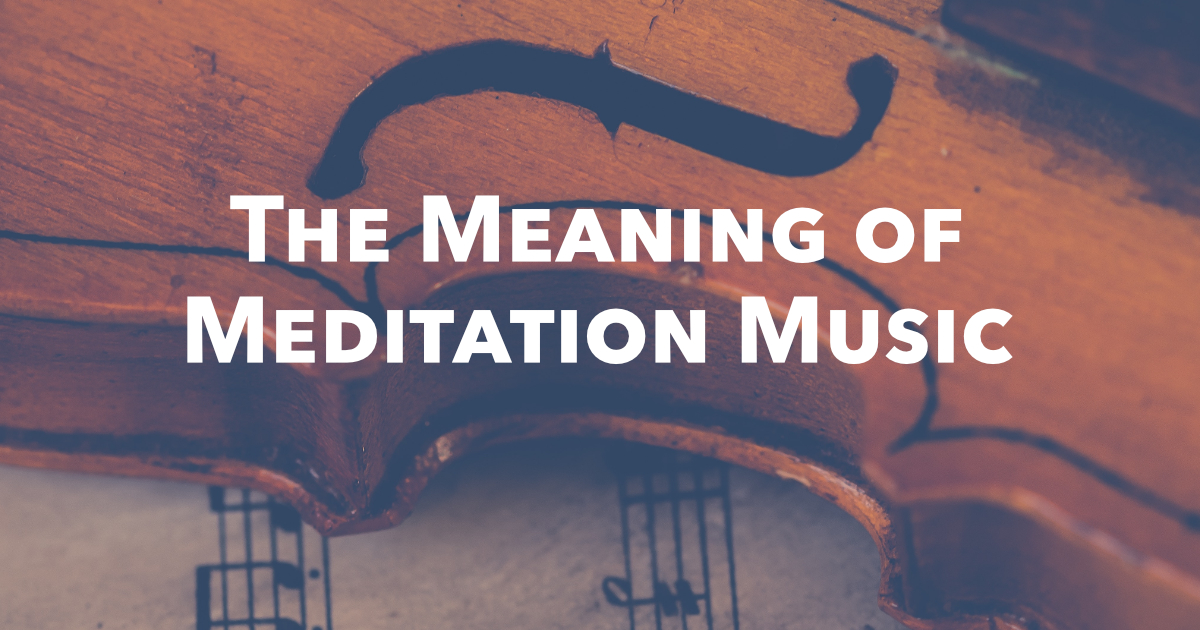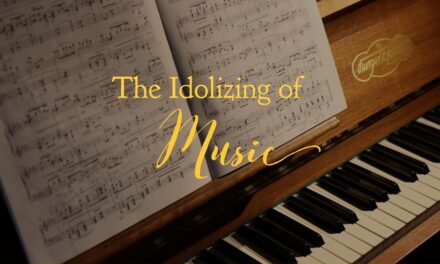In our world, “meditation music” has become popular even in the secular realm. However, the New Age version under this label is not meditation music at all. Meditation involves the mind. Thus, the Scripture urges believers to meditate on God’s Word day and night (Josh. 1:8; Ps. 1:2). The purpose of New Age music is to erase the mind—a passive condition that gives place to the devil. The Holy Spirit demands active cooperation, whereas evil spirits demand passivity.
For the believer, meditation music serves to calm the soul to facilitate hearing the still small voice of God. It quiets the inner being so there can be Spirit-to-spirit communication that subsequently works out through the mind (Rom. 8:16a; Eph. 4:23). Surely there is a time for celebrative music to excite the soul in exuberant praise of God. This is fitting especially in a public setting. Yet there is also a time for meditative music to calm the soul in quiet listening, and such music is particularly well-suited for a private setting. In the classical music realm, this style is referred to as adagio, music designed to “quiet the heart” rather than “excite the heart.” It incorporates softer, quieting tones as opposed to louder, exciting ones. To use the language of painting, it involves the pastel shades of God’s creation, instead of bold, vibrant colors.
When the kings of Israel, Judah and Edom sought the prophet Elisha, and Jehoram made an appeal for aid, “Elisha said, As the Lord of hosts liveth, before whom I stand, surely, were it not that I regard the presence of Jehoshaphat the king of Judah, I would not look toward thee, nor see thee” (2 Kings 3:14). Clearly Elisha’s ire was up. But for the sake of Jehoshaphat, Elisha said, “But now bring me a minstrel [musician]. And it came to pass, when the minstrel played, that the hand of the Lord came upon him” (2 Kings 3:15). Then upon hearing from the Lord, Elisha gave God’s way of deliverance.
The music in this context was instrumental, not vocal, for it says the musician only “played.” The sound could not have been loud since there was only one instrument, likely a string instrument. The musical sound was such that it calmed Elisha’s anger and allowed him to hear from God. F. B. Meyer said of this passage, “The influence of music calms his agitation and predisposes him for the Divine communications.” Keil and Delitzsch observe, “He then sent for a minstrel, to collect his mind from the impressions of the outer world by the soft tones of the instrument, and by subduing the self-life and life in the external world to become absorbed in the intuition of divine things.”
This is similar to the situation when young David, “a cunning player on the harp,” was called upon to help troubled Saul. As “David took an harp, and played with his hand: so Saul was refreshed” (1 Sam. 16:16, 23). Again, the music was instrumental, not vocal, since the Scripture explicitly says, he took a “harp” and “played with his hand,” but did not sing with his voice. The musical sound was soft, not loud. Keil and Delitzsch comment regarding this passage on the “powerful influence by music upon the state of mind…[to] soothe the passions.”
These scriptural examples provide an understanding of the concept of meditation music. Meditation music is a gift from God whereby the soul is calmed to hear the still small voice of God. This aids the Spirit of God’s illumination of the Word of God to nurture faith in God. It also aids blessed communion with the Holy Spirit, fostering person-to-Person communication as one seeks the Lord.

John Van Gelderen
Post Author









WHERE DO YOU STAND ON SOUTHERN GOSPEL MUSIC?I’M GOING,LORD BE WILLING AND THE CHURCH DON’T RISE,I WILL BE @ THE NATIONAL QUARTET CONVENTION IN PIGEON FORGE,TN.HOW DO YOU DEFINE WHAT IS GOOD AND BAD?THERE ARE LYRICS,MELODY,HARMONY ,AND RHYTHM AS WELL.WHAT ABOUT SONGWRITERS LEE BLACK,KENNA TURNER WEST,AND OTHERS.MIGHT NEED TO LISTEN TO PAUL HEIL AND GOSPEL GREATS.LOTS OF GROUPS AND SONGWRITERS.HOPE TO HEAR FROM YOU
🙂 I’m not familiar with the details. Let each one be persuaded by the Spirit.
Helpful insight into the use of music to bring us closer to the Lord and the difference between that and “meditation” in a worldly sense. John, can you elaborate a little about how the opposite type of music–energetic, happy, “moving forward” music–is also used by the Lord? Can both be used in worship settings? I’m not speaking of contemporary styles that sometimes go far beyond. I’m speaking more in the realm of joyful, “move to action” hymns, etc. Thank you.
Thanks Janet! Good follow-up question. God made emotions to respond to truth. God made music to carry emotions. So God uses the energetic sound to carry the truth that excites us to praise and service.
What a simple yet clear way to express what I’ve been wanting to put into words myself. Thank you.